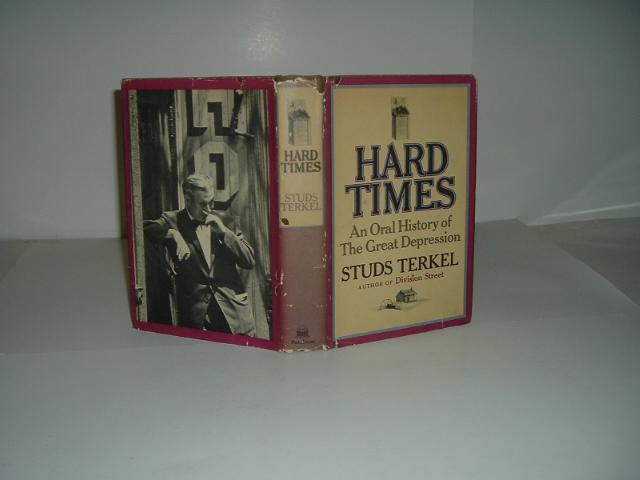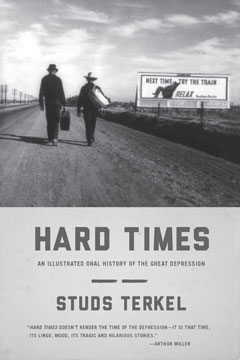


He could be among those who, for Carl Sandburg, exemplify “happiness” in his great poem of that title: not the “famous executives who boss the work of thousands of men,” but rather the “crowd of Hungarians under the trees with their women and children and a keg of beer and an accordion.”īorn in New York City in 1912 as Louis Terkel, he affixed “Studs” to his name-he writes in his 2007 memoir Touch and Go-after he graduated from law school at the University of Chicago and was trying to make it as an actor. Here, one thinks, is a contented man, secure in his take on history and pleased as punch to have cast his lot with the downtrodden. But it’s hard to not be won over by Terkel’s joyful display of conviction. Some may argue that Moore is unworthy of so grand an introduction, or that Terkel’s sentiments reveal an unbecoming naïveté. Then, effortlessly, he transitions to his guest-a native, of course, of Flint, Michigan: “Hearing that song of the thirties, of the Flint sit-down strike of labor, the CIO” Terkel says, stressing thirties and C-I-O, before drawing out the connection, “seated next to Michael Moore.”

With impeccable timing, he brings the volume down by lowering his hands. We’re gonna roll the union.”Īt this moment, the rascally radio hand is north of eighty, but he’s no old man lost in a reverie. His microphone before him, Terkel stammers and murmurs the lyrics: “We’re gonna roll. Outfitted in his signature red sweater-his white-maned head dwarfed by oversize earphones-he moves his arms to orchestrate the music, never mind that it’s a recording. “One more verse!” he barks several times to an off-camera radio crew. One of the greatest ever.” The song is rousing, but it is Terkel-and his endearing, revealing reaction to it-who captivates. Handcox’s classic folk song Roll the Union On, which Pete Seeger, who ought to know, once called, “a great picket line song. Midway through the documentary, in which Moore travels the country hawking his book Downsize This!, the provocateur filmmaker drops in on Terkel at 98.7 WFMT, the Chicago radio station that was home to Terkel’s interview program for over four decades.Įxcited to have him, Terkel cues up John L. The famed broadcaster and author had enough friends and acquaintances to last several lifetimes, so it’s no surprise when he pops up in Michael Moore’s 1998 film The Big One.


 0 kommentar(er)
0 kommentar(er)
